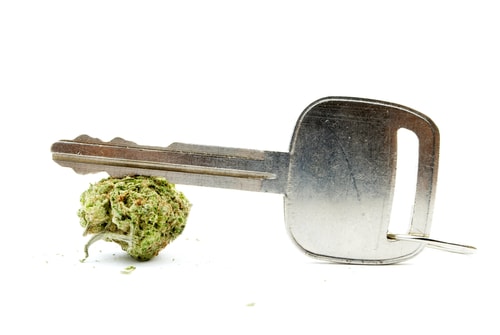How Does the New Illinois Marijuana Law Impact DUI Cases?
 The state of Illinois passed a new law that made recreational marijuana legal as of January 1, 2020. However, citizens should understand the restrictions attached to it and how this relates to medicinal use, driving, and potential DUI charges. People aged 21 and over are allowed to purchase up to 30 grams (or 500 milligrams of THC-infused products) of the drug from licensed retailers. They can smoke the substance in their own homes and on the property of certain cannabis-related businesses.
The state of Illinois passed a new law that made recreational marijuana legal as of January 1, 2020. However, citizens should understand the restrictions attached to it and how this relates to medicinal use, driving, and potential DUI charges. People aged 21 and over are allowed to purchase up to 30 grams (or 500 milligrams of THC-infused products) of the drug from licensed retailers. They can smoke the substance in their own homes and on the property of certain cannabis-related businesses.
Regardless of the new law, motorists are not permitted to operate a vehicle while under the influence of drugs or alcohol. Penalties for this criminal offense can range from fines, loss of driving privileges, and prison. It is important to know that you can be charged with DUI after using marijuana, even though the effects of it may be different than alcohol.
Medical Marijuana
Illinois residents who are authorized to use cannabis for medicinal purposes must be 18 or older and register with the Department of Public Health. They must obtain a written certification from a doctor who is licensed in Illinois. If that criteria is met, they will receive a registry identification card with a note on their Illinois driving record.
Even though Illinois law allows for the use of medical marijuana, a driver may not operate a motor vehicle while under the influence of cannabis, even if it is prescribed for an ailment. If a police officer stops a motorist who has a medical cannabis registry card and the officer has reasonable suspicion to believe he or she is impaired by the drug, that driver must submit to field sobriety testing. If a driver refuses to submit to testing or fails the field sobriety tests, his or her driver’s license can be suspended.
THC and Drugged Driving
Tetrahydrocannabinol (THC) is the active ingredient in marijuana. THC levels generally peak and exit the bloodstream in less than a few hours. However, impairment can last up to eight hours, which means a blood test taken after a DUI traffic stop may fail to identify impairment due to cannabis use. A person’s level of intoxication with THC can also depend on other factors, such as how it is ingested, if an individual is a regular user, and if he or she has other drugs or alcohol in his or her system.
According to Illinois law, drivers with a THC blood concentration of five nanograms or more per milliliter are classified as driving under the influence. This statute applies whether or not the driver is considered to be impaired. Illinois State Police are spearheading a special DUI Task Force to review the guidelines on roadside sobriety testing for suspicion of drugged driving.
Driving while impaired by the use of cannabis, or driving with an open container of the controlled substance, can result in the loss of driving privileges in addition to the revocation of a motorist’s medical cannabis card. Criminal penalties, including fines and prison time, are also likely to apply.
Contact a Joliet Criminal Defense Attorney
With recreational marijuana now legal in Illinois, it is important to understand when, where, and how much a person can use. Driving under the influence of drugs is still illegal in every state. However, the level of impairment after using cannabis can be different for everyone. There is a gray line when it comes to testing for drugged driving. The competent legal team at McNamara Phelan McSteen, LLC keeps abreast of any changes to what is involved with a DUI charge that involves cannabis. Our qualified Will County DUI defense lawyers understand how new laws may affect your case. To schedule your free consultation, call our office today at 815-727-0100.
Sources:
https://www.cyberdriveillinois.com/departments/drivers/traffic_safety/DUI/home.html
https://www.illinoispolicy.org/what-you-need-to-know-about-marijuana-legalization-in-illinois/
 815-727-0100
815-727-0100













